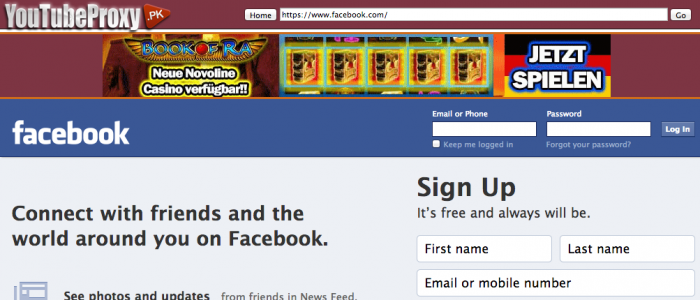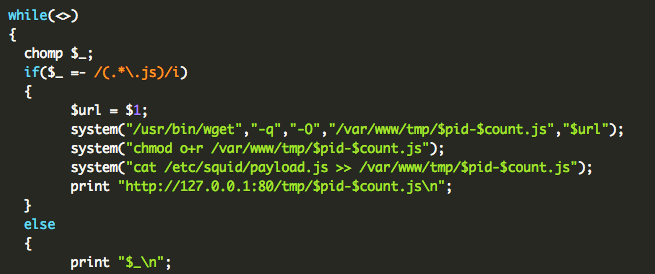Why you should be careful with free proxies
Just because someone is offering something for free doesn’t mean that they aren’t getting something out of the relationship. Facebook doesn’t charge members of their website, but makes money from ads and selling your data. Google doesn’t charge you for searching, and again makes money for ads and selling your data (seeing any trend here ?) So how do free proxies make money or at least pay the bills to stay in business ? Below we’ve outlined why using a free proxy or an untrusted proxy is dangerous.

Model 1 – less sinister

Some proxies inject ads into webpages, they either do this by adding a header bar onto the page or by editing the existing ads on the page. First way is to add ad top bar with ads to every page, and a new set of ads is displayed every time you load a new page. The proxy owner in turn makes money either for every ad impression or ad click.
Some proxy owners have taken it a step further, what they do is replace existing ads on pages with their own ads. When they request a webpage on your behalf they scan the page for familiar ad sizes and formats. Then before sending you the page they replace these ads with their own ads. In this case the website owners loose potential revenue as their ads no longer display. It’s also possible that you won’t notice this type of a ad swap as there isn’t any easy way to notice such changes (besides not using the proxy website).
Model 2 – a lot more sinister
As we’ve highlighted in Model 1 it’s trivial enough to change the content of a webpage when you are serving it over a proxy. So what happens when the proxy owner wants to take it a step further? It is possible, and pretty straight forward, for a proxy owner to add in their own code into a webpage they serve from their server. The nasty ones can add files that will monitor what you input to browser forms and steal your credentials. For example if you are in a country where Facebook is blocked, and you want to access the website, if you logged in via a sinister proxy it’s possible that they intercepted your log in details. Or in some cases they’ve even redirected to you to a fake holding page for Facebook so any security warnings may not appear.

Similar enough attacks can happen for you logging into your bank account, or purchasing items online. Shopping on a proxy and buying with a credit card will open you up to the possibility of having your credit cards stolen. More technical reading on how this can be done with free proxies see at [1].
Know the dangers of proxies
So be informed, and know about the dangers of using a free proxy. If it’s a risk you are willing to take, then by all means try it out, but we would advise you not to log into any websites that have sensitive data (Bank, email, Facebook, etc. ) or purchase anything online as these details can easily be stolen and used by a hacker.
Using a trusted VPN provider is one of the best and easiest ways for you to access blocked websites while still keeping your private information private. Also note that a similar type of hack can be use for free WiFI hotspots too. The basic rule of thumb when using an open access point is that everyone can see everything on that network. So the next time you are in Starbucks enjoying our Latte, remember that there could be a hacker on that network wanting your credit card details to buy his own coffee !
